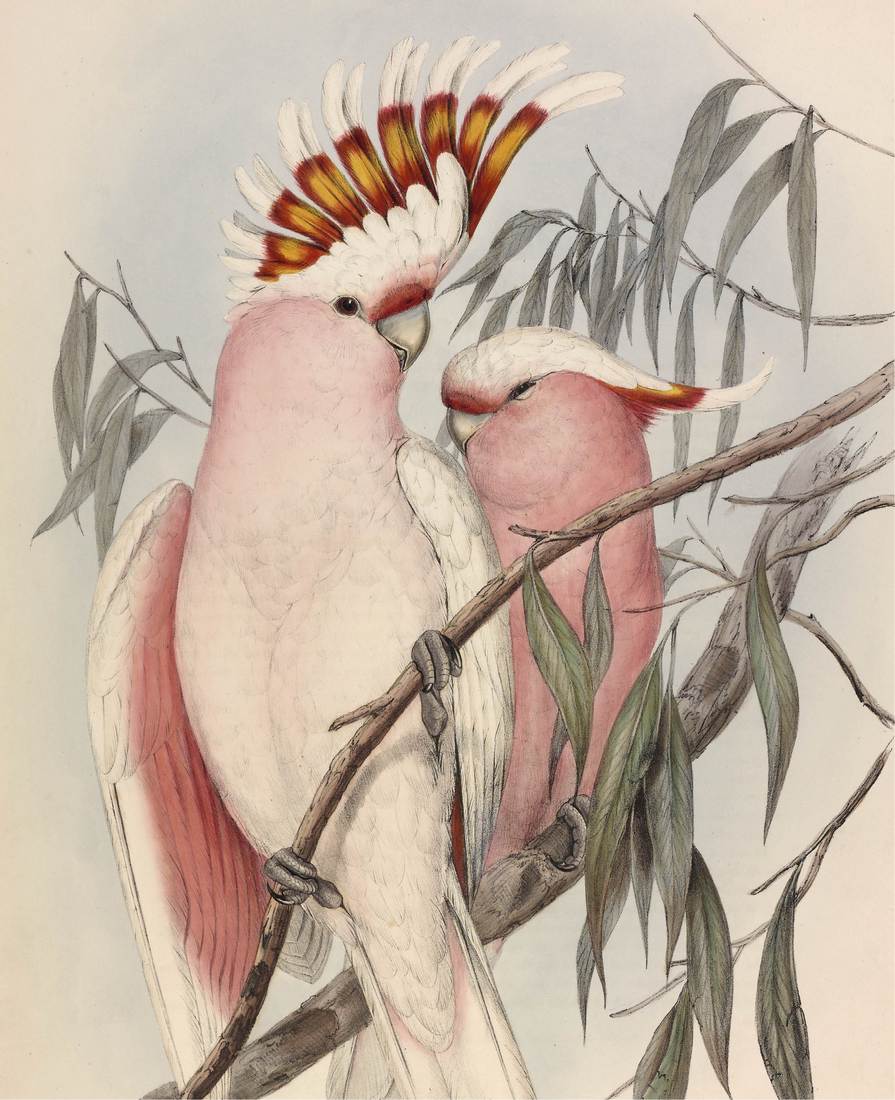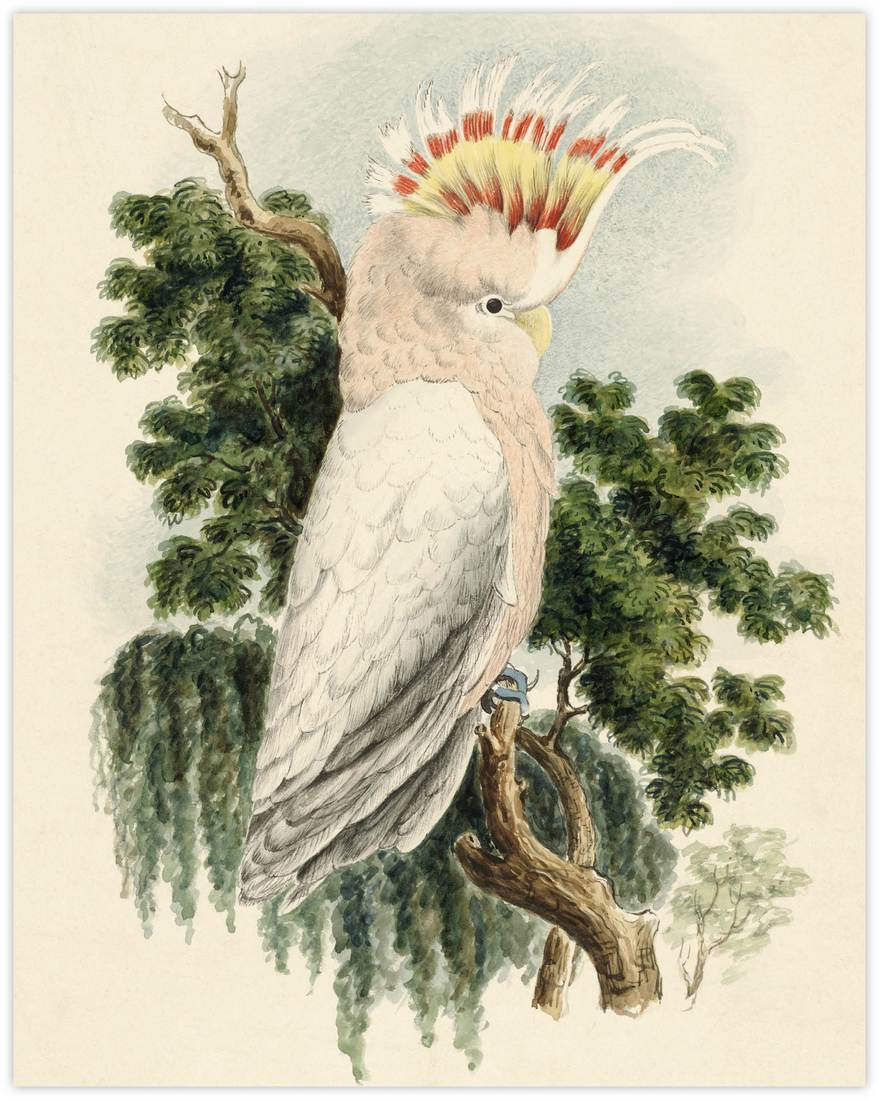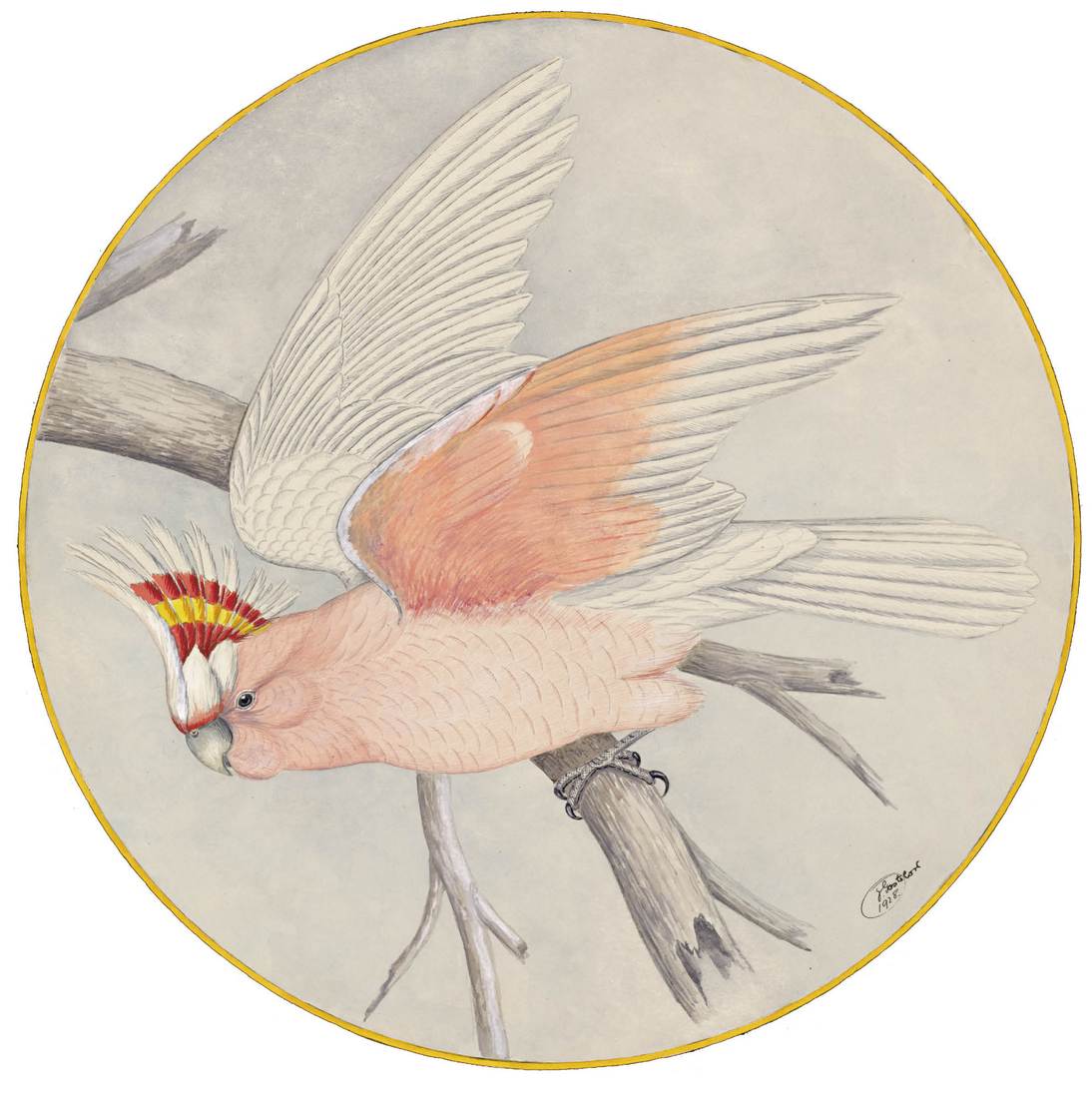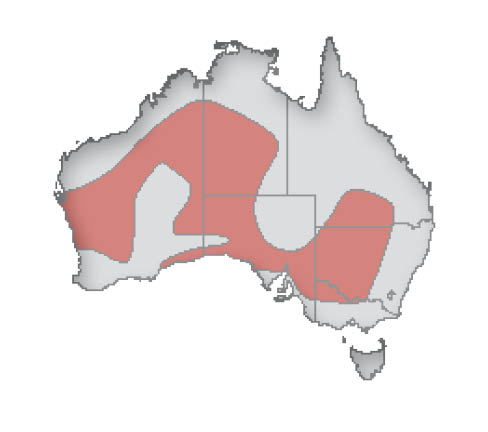Major Mitchell’s Cockatoo
Lophochroa leadbeateri
Nicholas Aylward Vigors was the first to describe the species, in 1831.
Lophochroa is from the Greek lophos (crest) and khroa (colour); leadbeateri commemorates Benjamin Leadbeater, a British naturalist and trader in natural history specimens.

John Gould (artist), Henry Constantine Richter (lithographer), Cacatua leadbeateri (Leadbeater’s Cockatoo) 1848
Author’s note: Major Mitchell’s Cockatoo is also known as the Pink Cockatoo for its delicate, pastel pink plumage. Even its chicks are pink. Often considered the most beautiful of the cockatoos (John Gould found it so), it is an uncommon but widespread cockatoo with a spectacular, scarlet-and-yellow striped crest.

Sir Thomas Mitchell, Cockatoo from the Interior of Australia 1838
Author’s note: Mitchell’s illustration is the first of the species. He described his find in volume 2 of his book, Three Expeditions into the Interior of Eastern Australia (1838).

Ebenezer Edward Gostelow, The Pink Cockatoo, or, Wejugla, Major Mitchell, Lead Beater’s C. (Kakotoe leadbeateri) 1928
Author’s note: Wejugla could be the cockatoo’s name used by the Aboriginal people of Broken Hill, New South Wales, where Gostelow worked as a school principal.




